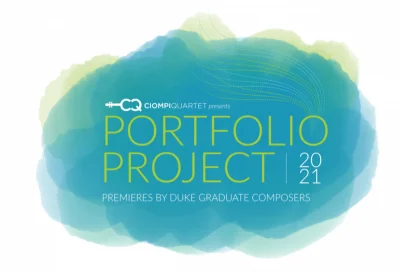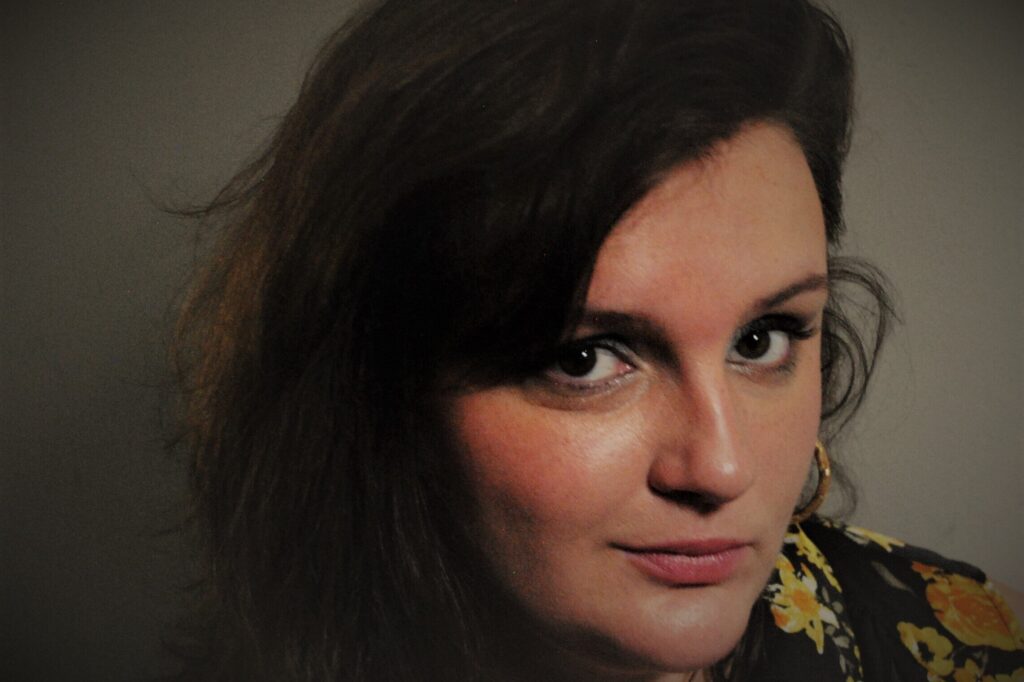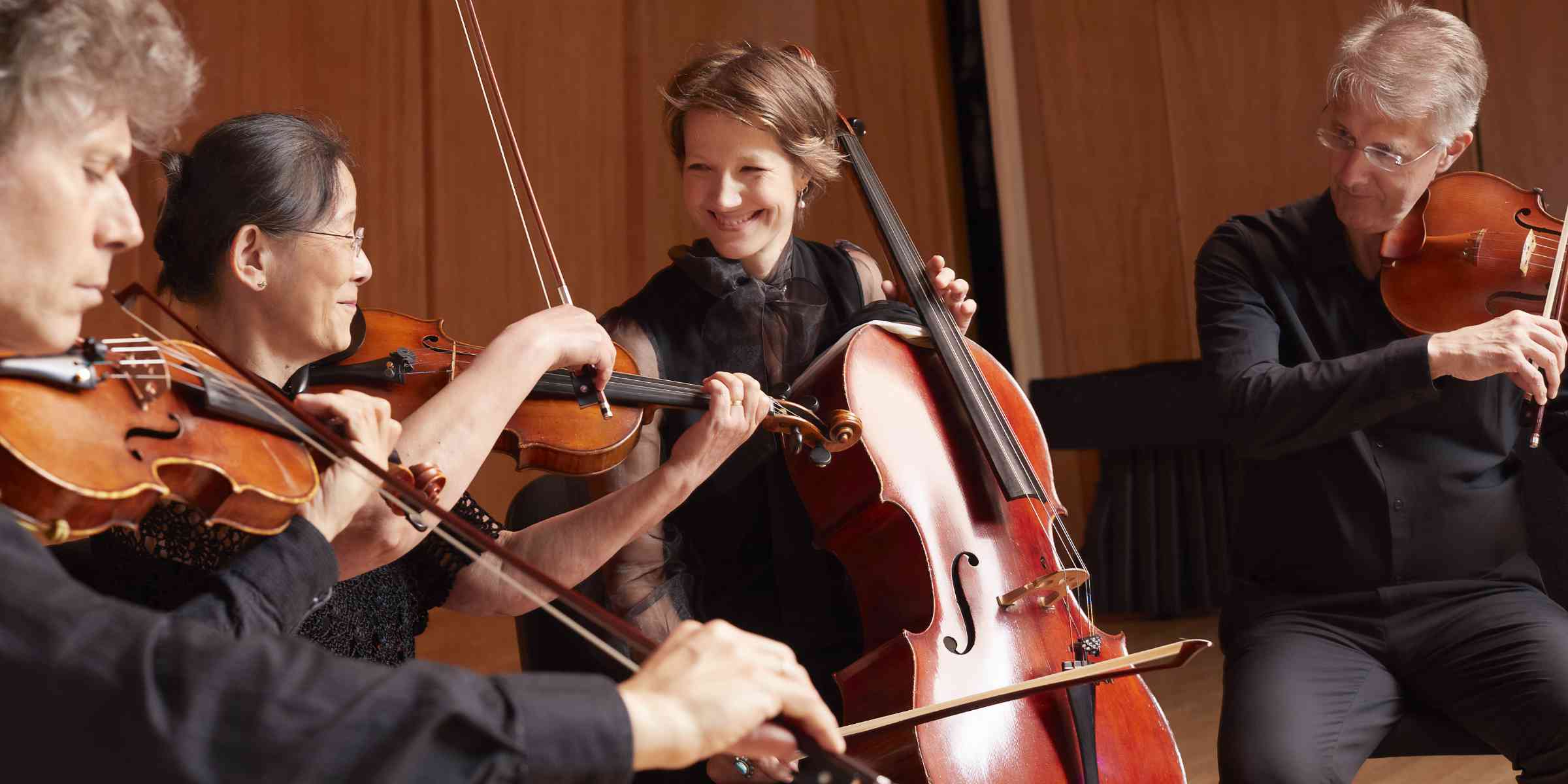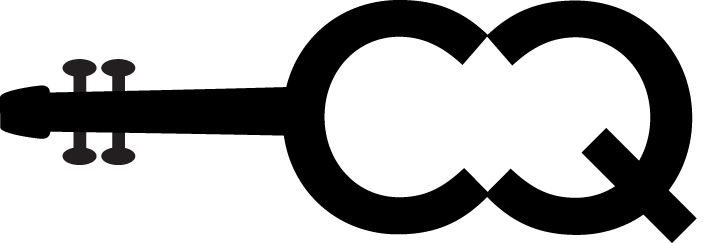
The Ciompi Quartet Portfolio Project began in the summer of 2020 as a way for the Quartet to engage with composers in Duke Music’s graduate program during the Covid pandemic, when live performances were curtailed and composers and performers needed creative outlets for their music. Portfolio Project 2020 was presented by Duke Music’s Best of Biddle virtual series last March, with the video receiving hundreds of views since its premiere.
The success of the initial project inspired the Ciompi Quartet to continue the Portfolio Project in the summer of 2021, commissioning works from Duke graduate composers Dayton Kinney, Huijuan Ling and Brooks Frederickson.
Dayton Kinney, An Empty Room

Dayton Kinney graduated from Duke University with a Ph.D. in Composition in December 2021. Before receiving the commission for the Portfolio Project, she had worked with the Ciompi Quartet on her dissertation piece. “I tend to compose music that explores women’s experiences,” Kinney says. “In my dissertation piece, recorded by the Ciompi Quartet and artists-in-residence Imani Winds, I looked at repeating patterns within families, between generations of women.” In An Empty Room, a short, one-movement piece, Kinney was inspired by the ambiguous idea of an empty room. “An empty room is a place of mixed emotions,” she says. “It can be a room for a child that can’t be conceived because of infertility or of a loved one who has died of Covid. Or it could become an office, a place of creativity. There’s a dual nature to it.”
An Empty Room begins with musical motives that aren’t allowed to develop fully. “There’s a lack of physical substance, like a room without furniture. Musical ideas are present, but because they can’t develop, they don’t feel alive. The piece asks the question, should it become something or not?”
Huijuan Ling, Ondulations

The Ciompi Quartet is also participating in the recording of Huijuan Ling’s Ph.D. dissertation piece. For Ling, participating in Portfolio Project 2021 gave her the opportunity to interact with the group in advance and learn how they work. “I think all Duke composition students, both graduate and undergraduate, wish they could write for the Ciompi Quartet at some point during their time here,” she says. “Their way of commissioning a work is ideal—they are hands-off and very open minded. They don’t tell you what to write. They want to give you space to explore your own ideas.”
At the moment, Ling’s ideas center around water. She started working on Ondulations last summer after participating in Weekend of Chamber Music, a festival directed by Ciompi Quartet cellist Caroline Stinson and composer Andrew Waggoner. “My piece that premiered there, Stranding/Whalefall, was still fresh in my mind,” Ling says. “I had water on my mind, and when I started working on the Portfolio Project commission, I thought of waves.” Ling composed the first movement, ‘Ondulation 1, Complex,’ and shared it with Professor Stephen Jaffe. “I was playing with the idea of waves, but in a very abstract way. Professor Jaffe suggested I write additional material that was more explicit, that explored a more accessible wave motion.” Ling responded with a second movement, ‘Ondulation 2, Simplified.’
“Ondulations turned out to be a little longer than the Ciompi Quartet originally requested,” Ling says, “but they didn’t mind. That’s what I mean about them being supportive and open-minded—they let the music be what it needs to be.”
Brooks Frederickson, I was thinking about the buffalo

Brooks Frederickson’s work explores the connections and intersections between sound and technology. In I was thinking about the buffalo, he incorporates an electronic string quartet created through Ableton software to extend the sound of the Ciompi Quartet’s performance. “I’m interested in the connection between live performers and electronics,” he says. “In this commission for the Portfolio Project, I’m surrounding the real string quartet, the Ciompi, with the sound of a ‘fake’ quartet created in Ableton. The electronic quartet generates a cloud of sound around the live performance.”
Frederickson has been experimenting with the connection between live performance and electronics since he began his Ph.D. in Composition at Duke. “My first year at Duke was the first year of the JACK Quartet artist residency,” he says. “I wrote a string quartet for them and then added electronics. I was thinking about the buffalo explores an even deeper integration between these two elements: the human performer and technology.”
“I think it’s great that a faculty ensemble like the Ciompi Quartet is reaching out to students,” he adds. “Working with them is an opportunity that’s valuable to all of us.”



